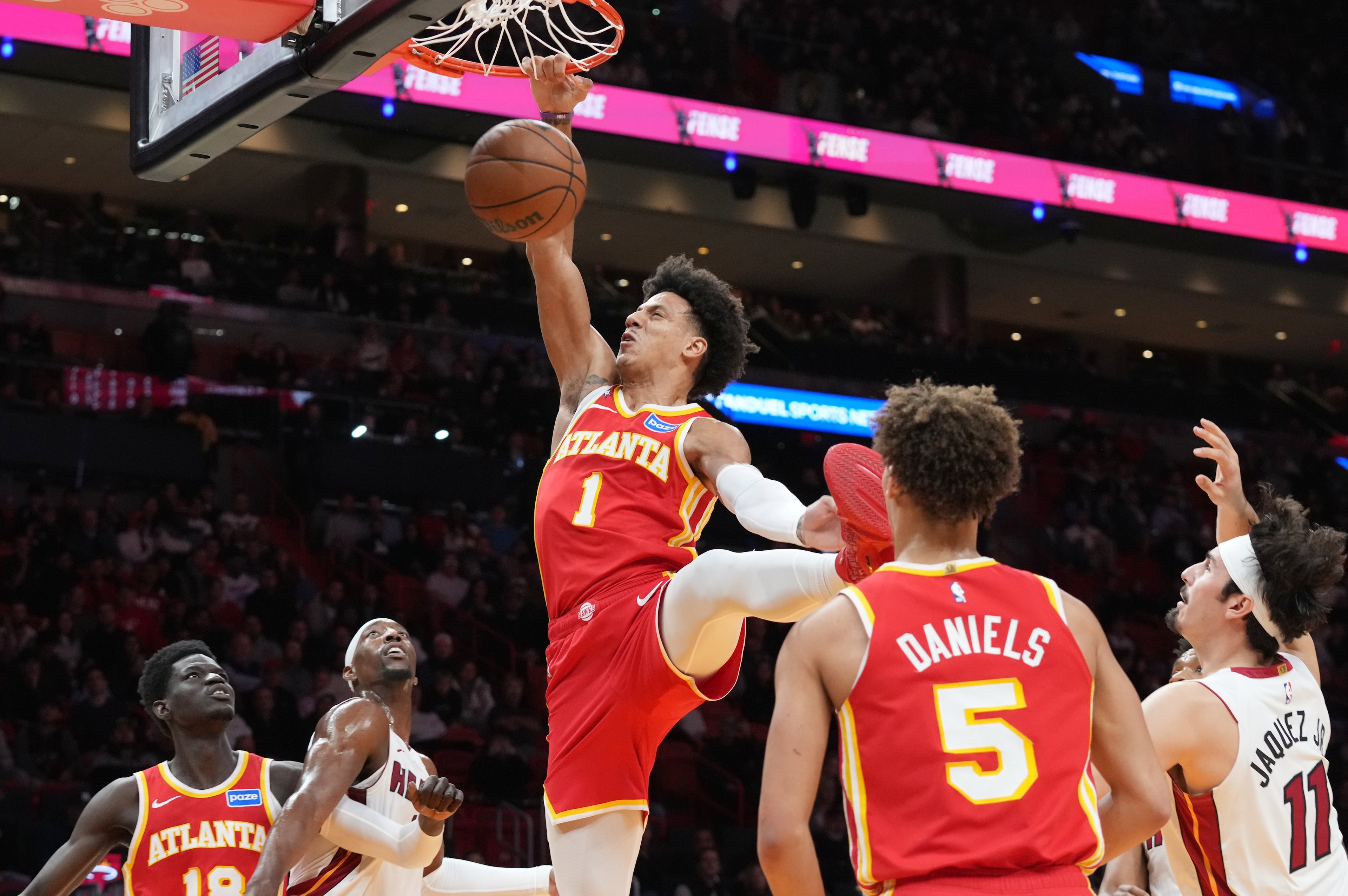It’s playoff time, and Dwight Howard has had little effect

The surprise wasn’t that the Hawks trailed the Wizards 2-1 heading into Monday’s Game 4 of Round 1. The Wiz were the higher seed; they’re supposed to be leading. Nor was it shocking that Paul Millsap, the most circumspect of souls, had gotten dragged into a spitting fight (minus the actual spittle) with Markieff Morris. These are the playoffs. Stuff happens.
What should have been shocking was this: The Hawks were still alive — indeed, they’d outscored their opponent over three games — getting this from their starting center: Seven baskets on 15 shots, plus four free throws for 18 points. And here we note: That was an aggregate, not the per-game average.
Through three games of Round 1, that’s what the Hawks had gotten from Dwight Howard, for whose services they’re paying $70.5 million over three years. (This being Year 1.) Given that Howard once was a big NBA deal — bigger enough to bill himself as Superman — you’d think, “Did these guys sign the scrawny Mr. Mxyzptlk by mistake?” But if you watched this season, you know this is no real shock.
Six Hawks had outscored Howard in the series, one being Taurean Prince, who’s a rookie. The erstwhile Man of Steel had worked 76 minutes, an average of 25.3 per game. For the record, regulation games last 48 minutes. The man making $23.5 million per season has, at the most important time of the NBA year, been playing roughly half the game.
Which is, you’d also have to say, about right. Howard’s scoring against Washington resembles a Cape Canaveral countdown: 7 points, then 6, then 5. The Hawks won the game in which he made two baskets 116-98. He wasn’t needed to score. He’s really not needed to do anything but rebound. (And he has, to his credit, seen to that. He took 32 in Games 1-3.)
The minutes are the real indicator: When the game’s on the line, Howard isn’t always on the floor. NBA teams keep going smaller and smaller, and he’s not quick enough to guard a stretch-4 who’s playing the 5-spot. Come the playoffs, not many teams have a like-for-like for him to guard. (Al Horford, whom Hawks fans spent nearly a decade describing as Not A True Center, has become about as true as it gets.)
Fun with numbers: Howard averaged 29.7 minutes per game during the regular season; he’s down to 25.2 in the playoffs. Paul Millsap averaged 34 minutes per game during the regular season; he’s at 34 in the postseason, too. Dennis Schroder’s MPG: 31.5 then, 35.1 now.
This tells us what we already knew: The biggest name among Hawks is among the least essential. They were 6-2 in games he didn’t play this season, and the latter of the losses came in the Game 82 giveaway in Indianapolis. For all the Hawks’ happy talk about how good a teammate he has been, the cold truth is that they filled the gap left when the indispensable Horford left for Boston with a big-ticket free agent who hasn’t yet and never will fit what the Hawks do best on offense.
Side-by-side comparison/contrast: The Houston Rockets, who shed Howard, improved from 41-41 to 55-27; the Hawks, who added him, slid from 48-34 to 43-39.
At half the salary, Howard might have been a worthwhile addition — a rebounder who can block the occasional shot. (He finished 20th in blocks over the season; he totaled three in Games 1-3.) The professed offseason work on his jump shot notwithstanding, he still has no staple move — unless you count the putback dunk. His infamous foul shooting is yet another reason not to have him on the court at the end of a tight game.
Howard is 31, a veteran of more than 1,000 NBA games. He’s never going to be what he once was. Not so long ago, the Hawks feared him so much that Mike Woodson got fired largely because of the insistence on double-teaming him and thereby freeing Orlando’s perimeter shooters. The Hawks were swept in that series by 101 points. The next year, Larry Drew eschewed the double-team and let Jason Collins take Howard by himself. The Hawks won in six.
Today nobody needs to run a second defender at Howard, which means he has gone from space-enhancer to lane-clogger. His ballyhooed Return To Atlanta has been muted. Think about it: When last did you have a conversation about Dwight Howard?
If the Hawks survive Round 1, there might be an opponent against whom Howard becomes a real asset. (Horford, possibly. Cleveland’s Tristan Thompson, probably.) Against these Wizards, Superman has been rendered just another guy.



